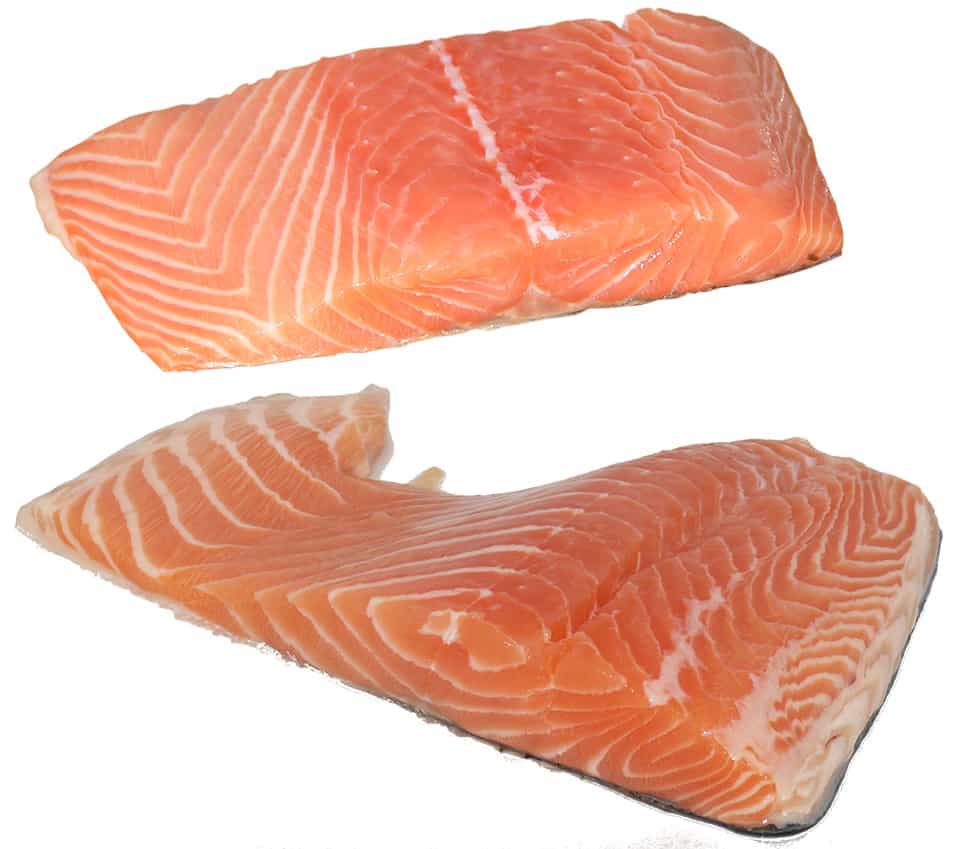Omega-3 fatty acids (often called just omega-3s) are a group of polyunsaturated fatty acids that are important for a number of functions in the body. They are a type of essential fatty acid so-called because they are required by the body, but cannot be manufactured by the body. Therefore, your diet is an important source of these. Omega-3s can be found in cold-water fatty fish, such as salmon or sardines, or shellfish such as oysters and scallops. Flaxseed, canola oil, and walnuts also are other good dietary sources of omega-3 fatty acids. Because of the importance of these fats, it’s also become popular to use supplements such as fish oil as a source of Omega-3s.
The three principal omega-3 fatty acids are alpha-linolenic acid (ALA), eicosapentaenoic acid (EPA), and docosahexaenoic acid (DHA). Fish contains primarily EPA and DHA, while ALA is found in plants sources such as seeds and nuts.
The other type of essential fatty acid that your body cannot produce, but requires for proper function, are the omega-6 fatty acids. Unlike the omega-3s, these are abundant in the modern American diet – they are found in many of the vegetable oils common in most processed foods, including fast food. Some research indicates that having too much omega-6 fat in your diet can interfere with the proper utilization of omega-3 fats – and that’s why you’ll often hear about omega-6 to omega-3 ratios.
Health Benefits of Omega-3 Fatty Acids
Beyond being an essential nutrient for the proper function of your body, the omega-3 fatty acids are antiarrhythmic, antithrombotic, and anti-inflammatory. These are also useful properties that can improve your health.
- Slow growth rate of atherosclerotic plaque – Omega-3s appear to have some protective effect on the spread of plaque in the arteries.
- Decrease risk of arrhythmias (abnormal heartbeats) – which can result in sudden death
- Elevated Triglycerides – High doses of fish oil have been shown to measurably lower the level of triglycerides circulating in the blood.
- Rheumatoid Arthritis – Fish oil supplements (EPA+DHA) can curb stiffness and joint pain
- Asthma – The anti-inflammatory effect of Omega-3s seems to help those that suffer from asthma
- Depression – Some studies have shown that those that eat a diet high in omega-3s are less prone to depression.
- Blood pressure – Omega-3s have a mild effect on decreasing blood pressure, when ingested in very large quantities.

Food Sources of Omega-3s
The following fish are superior sources of the omega-3 fatty acids EPA and DHA. Fish is also an excellent source of protein. Please also note that the amount of omega-3 can vary by the type of seafood – it’s hard to beat salmon for the amount per serving.
- Salmon
- Albacore Tuna
- Herring
- Lake Trout
- Mackerel
- Bluefish
- Sardines
- Oysters
- Mussels
- Scallops
Please note that while fish can be an excellent source of omega-3s, predatory fish such as mackerel are also likely to have higher levels of mercury, PCBs, and other toxins – so that should be ingested sparingly, if at all. This is because these toxins tend to accumulate in the tissues of those species that are higher up the food chain. Pregnant women and children should especially limit their intake from these types of fish.
Secondly, wild fish are preferable to farmed fish. Farmed fish are more likely to have higher levels of toxins due to the conditions under which they are raised. If fish isn’t labeled as wild, you should probably assume it has been farmed.

As we mentioned earlier, ALA is primarily found in plant sources, such as:
- Walnuts
- Flaxseed and flaxseed oil
- Canola oil
- Soybean oil
- Chia seeds

Fish Oil Supplements
We haven’t yet discussed in detail fish oil supplements. These are a very popular item in recent years, and can be found in nearly every grocery store and online. It is important to know that studies have not been able to link the same protective benefits of eating seafood to taking Omega-3 supplements, such as fish oils. Researchers are not sure why this is, but it is possible that eating seafood tends to displace other food sources, whereas fish oil supplements are simply taken in addition to the regular diet. As an example, the American Heart Association recommends consumption of two servings of fish per week for persons with no history of coronary heart disease and at least one serving of fish daily for those with known coronary heart disease.
But for those that do not care for the taste of fish, or the expense and effort to procure and prepare fresh fish regularly, fish oil supplementation is probably a good idea. For some taking fish oil supplementation is the only practical way to consistently get the higher doses necessary for the protective effects (such as those looking to lower triglycerides.)
On the flip side, high intakes could cause excessive bleeding in some people. This is due to the antithrombotic (anti-clotting) effects of omega-3s – which can interfere with blood clotting ability. Therefore, it is recommended to consult with your physician before embarking on a regimen of very high fish oil supplementation.

In Summary
Omega-3 fatty acids, and essential nutrient for your body, are plentiful in many types of food, and also available in supplements for convenience. There are health benefits and protective effects in addition to the basic biological functions that these nutrients fulfill.
References
- Anti-obesity effects of long-chain omega-3 polyunsaturated fatty acids.
- Omega-3 fatty acids and secondary prevention of cardiovascular disease-is it just a fish tale?: comment on “Efficacy of omega-3 fatty acid supplements (eicosapentaenoic acid and docosahexaenoic acid) in the secondary prevention of cardiovascular disease”.
- Omega-3 fatty acids.
- Fish and Omega-3 Fatty Acids

Tim is the founder of FitAtMidlife.com – an avid gym rat for 30+ years, he’s a reviewer of many, many shoes – and founder of the Speed Bag Gathering – the world’s only gathering of speed bag punching enthusiasts. See more gym reviews at Tim’s YouTube channel.

